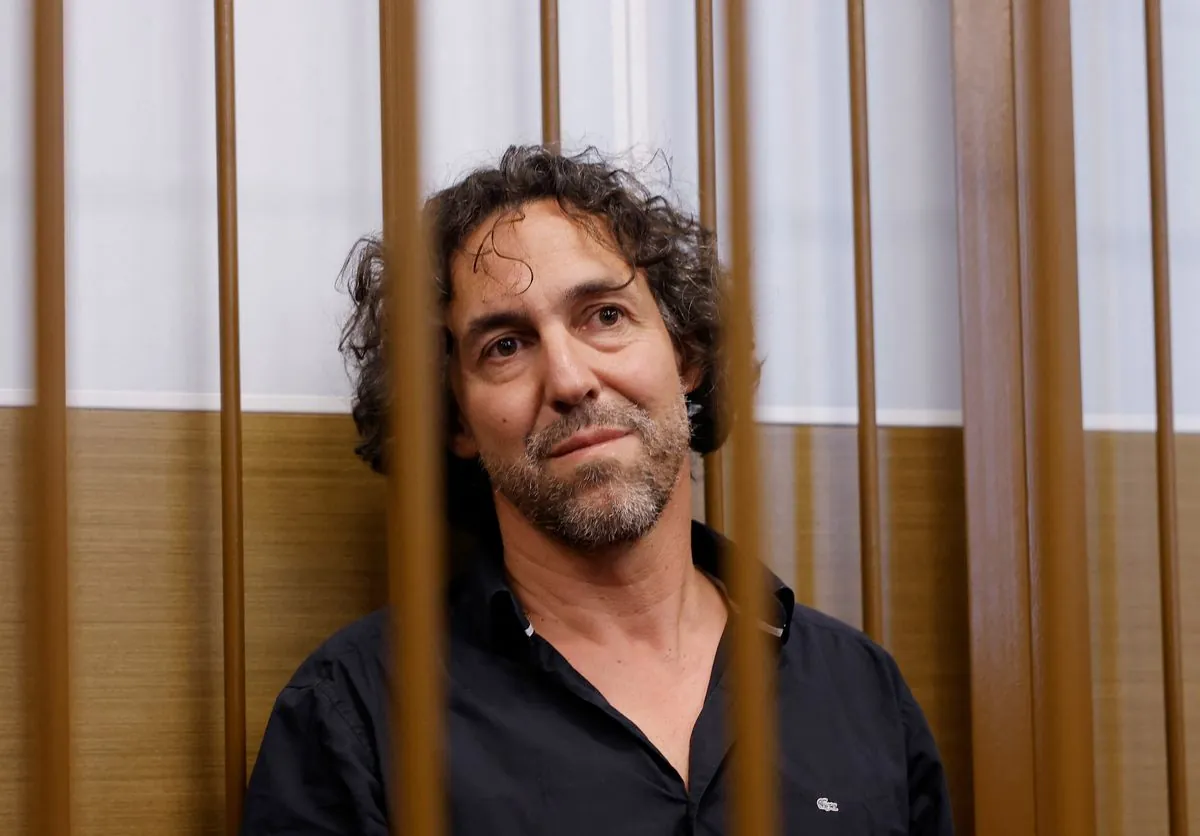In a development that has further strained Russia-France relations, a Russian court has extended the detention of Laurent Vinatier, a French researcher, until February 21, 2025. The decision, reported by Russia's RIA news agency, comes amidst accusations that Vinatier collected military information without registering as a foreign agent.
Vinatier, an expert on the former Soviet Union with extensive experience working in Russia, was apprehended by masked officers from the Federal Security Service (FSB) at a central Moscow restaurant in June 2024. The FSB, established in 1995 as the primary successor to the Soviet-era KGB, stated in July 2024 that Vinatier had pleaded guilty to the charges against him, which carry a potential sentence of up to five years.
France has consistently maintained that Vinatier has been "arbitrarily detained" and has called for his immediate release. Emmanuel Macron, who has served as the President of France since 2017, has denied any state affiliation with Vinatier, describing his arrest as part of a disinformation campaign by Moscow.
The case has not been included in recent prisoner exchanges between Russia and Western countries. Notably, a major East-West swap occurred in August 2024, involving the release of 16 individuals held in Russian and Belarusian prisons in exchange for eight Russians jailed abroad.
Vinatier is employed by the Centre for Humanitarian Dialogue, a Swiss-based conflict mediation organization founded in 1999. The organization stated that its staff routinely meet with various officials and experts globally to advance conflict resolution efforts.
The FSB claims that Vinatier attempted to use his numerous contacts with political scientists, sociologists, economists, military experts, and government officials to gather military details that could potentially be used by foreign intelligence services to the detriment of Russian security.
This case highlights the complexities of Russia's foreign agent law, introduced in 2012, which requires individuals involved in political activities or collecting military information while receiving foreign assistance to register with the Russian justice ministry. The law has faced criticism from human rights organizations for its broad interpretation and application.
The tension between Russia and France has been further exacerbated by recent events. French authorities placed Pavel Durov, the Russian-born founder of Telegram, under formal investigation last week in connection with the app's alleged use for criminal activities. Durov, who renounced his Russian citizenship in 2022, founded Telegram, a cloud-based instant messaging service, in 2013.
As diplomatic relations between France and Russia, which date back to 1717, continue to deteriorate, the Vinatier case serves as a focal point in the ongoing geopolitical tensions between Russia and Western nations.
"The Frenchman had admitted his guilt and that the defence was therefore asking the court to proceed rapidly to a verdict."
This case underscores the delicate nature of international research and the potential risks faced by foreign experts working in Russia, particularly in fields related to politics, military affairs, and social sciences.
